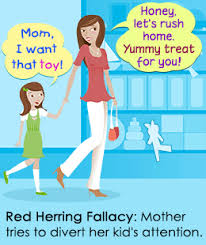
Because my grandpappy lived to the ripe old age of 120 and he never paid attention to hygiene. And someone will say, "Well, no, I'm not going to do any of these sorts of things despite the health evidence, despite the arguments for why we should try to avoid unnecessary contact and travel and things like that. For example, people will talk about something to do with a disease such as the coronavirus and risk factors. It introduces something that usually has a strong emotional reaction, positive or negative, and throws people off.Īnd red herrings are very common when you're talking about public health issues. And that is exactly what a red herring fallacy does. The only thing that you start paying attention to is that strongly smelling fish and all of your focus is on dealing with that fish, and you totally get sidetracked from enjoying your meal. The easiest way to remember what the fallacy is, is to think of the literal red herring, which is a very spicy and rather odiferous fish. To help navigate through them, WFDD's David Ford reached out to UNC-Greensboro Communication Studies Professor Roy Schwartzman. UNC-Greensboro Communication Studies Professor Roy Schwartzman. There are lots of different kinds: false dichotomy, equivocation, and straw man, just to name a few.

Simply put, logical fallacies are errors in reasoning the ideas might be arranged correctly, but the content's off-kilter.

“I believe it would be very instructive to help your listeners understand that these techniques can be used to deflect from truth.” “Could you find someone, perhaps an expert, who can present, explain, give examples of several logical fallacies?” she asks.

WFDD listener and retired Surry Community College educator Christina Connell says understanding an age-old method of misleading people may help. But doing so has become increasingly difficult with the explosion of digital media, and countless news platforms to choose from. In the midst of a pandemic and highly charged election season, being able to distinguish between truth and fiction is critically important.


 0 kommentar(er)
0 kommentar(er)
